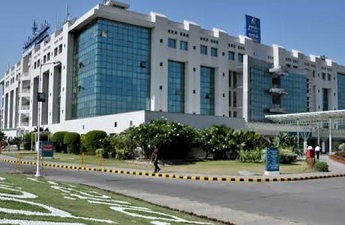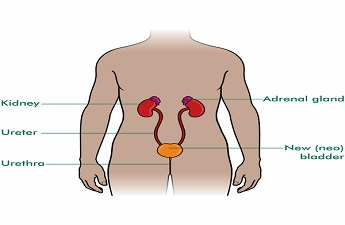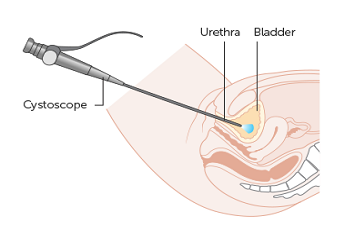Dr. Sanjay Gogoi is the best urologist in New Delhi with over 18+ years of experience. Dr. Sanjay Gogoi is the Director at Manipal Hospitals, Dwarka New Delhi, and is a Urologist and Renal transplant specialist. He has expertise in Urology, Urologic Oncology, Pediatric Urology, and Kidney transplants and has conducted over 500+ renal transplants in his career.
Dr. Sanjay Gogoi has previously worked with Apollo Hospitals in Colombo, Sri Lanka, and has been a Director with Fortis Memorial Research Institute, Gurugram. He is a Member of prestigious organizations including the Urological Society of India (USI), Indian Society of Organ Transplantation (ISOT), and American Urological Association (AUA).
Prostate Cancer
Prostate Cancer refers to tumor cells in the prostate gland responsible for storing seminal fluid for sperms in males. Prostate cancers grow slowly and in the early stages, remain inside the prostate gland. It is therefore imperative to detect prostate cancers early for a better prognosis.
Symptoms of Prostate Cancer
Benign conditions such as prostatitis or enlargement of the prostate have similar symptoms as that of prostate cancer. Symptoms may be:
-
Urgent and frequent need to urinate, especially during the night
-
Urinary incontinence
-
Erectile dysfunction
-
Painful intercourse and ejaculation
-
Burning sensation when passing urine
-
Blood in the urine or semen
-
Decrease in seminal fluid ejected during sex
-
Pain in the rectum
-
Lower back pain
-
Pain in thighs, hips, or the pelvis
-
Bone pain
-
Unexplained weight loss
Prostate cancers cannot be detected without blood tests or a digital rectal examination. A person is at risk of developing prostate cancer if:
-
They are over the age of 50
-
They have a family history of prostate enlargement, prostate, breast, and ovarian cancers
-
They are obese
The incidence of prostate cancer in the Western world is much higher than that in Asian countries. African-American males have a significantly higher risk of developing prostate cancers than the rest of the population.
Prostate Cancer Diagnosis
Screening for prostate cancer is the best way to diagnose prostate cancer. Advanced medical technology plays an important role in diagnostic tests for prostate cancer.
-
PSA Blood Test: The blood test determines the value of the prostate-specific antigen in the blood. Abnormal values are a clear indication of the presence of suspicious cells in the prostate.
-
PHI Blood Test: The prostate health index blood test is a newer and more accurate test to diagnose prostate cancer. This test is conducted if the PSA values are 4-10.
-
PCA3 Urine Test: More than the normal number of PCA3 genes in the urine are indicative of cancer in the prostate.
-
MRI-guided Biopsy: While the above tests can help access the risk for prostate cancer, a definitive diagnosis can only be reached by biopsy. MRI images along with ultrasound can guide the needle biopsies to more specific areas that show suspicious cell growth.
Prostate Cancer Treatment
Prostate cancers grow slowly and may not cause significant problems in a patient for years. On the other hand, prostate cancer treatment can compromise the quality of life of a patient. For this reason, keeping prostate cancer under active surveillance is a treatment plan opted for by patients. Regular blood tests and biopsies can determine if and when the prostate cancer has turned aggressive.
-
Surgery: The entire prostate gland, seminal vessels, and surrounding lymph nodes may be removed. Surgery can be done as:
-
Open prostatectomy
-
Robotic or laparoscopic prostatectomy
-
-
Radiation: High energy rays are used to destroy cells including cancer cells.
-
External radiation: Radiation is done through an external machine that focuses beams of high energy on the affected area.
-
Brachytherapy: Radioactive sources or seeds are inserted into the prostate directly.
-
Proton therapy: Considered to be very effective for prostate cancer treatment, protons are used for radiation instead of the X-ray radiation beam.
-
-
Focal Therapy: A less invasive method to treat low-risk prostate cancers where heat, cold or other methods are used to kill the cancer cells.
-
Medication: Cancer treatments such as chemotherapy, immunotherapy, hormonal therapy, radiopharmaceuticals, etc that include medicines to kill cancer cells.
Conclusion
Early detection is key for better results for all cancer treatments including prostate cancers. It is important to understand the risk factors for developing prostate cancers and discuss with a medical practitioner to undergo screening for prostate cancer.
















































